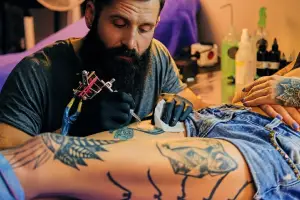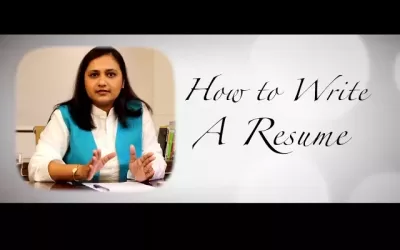 Skin Stories: The Life of a Tattoo Artist
Skin Stories: The Life of a Tattoo Artist
Ms. Mugdha Shetye in this episode talks about the offbeat career tattoo artist. Tattooing is one of the oldest forms known. In ancient times, tattoos had a symbolic significance. It’s being succeeded from generation to generation. Today, the purpose of making tattoos has changed. Now, people make it for fashion. Modern tattoo artists use electronic tattoo machines for tattooing. A tattoo artist makes decorative tattoos in words, pictures, or symbols. There is no formal
education for becoming a tattoo artist. One can learn in studios under professional tattoo artists. To become a professional tattoo artist you need to be above 18 years of age. There are no bachelor’s or master’s courses available in India. One can get groomed under an experienced tattoo artist. One needs to have certain skill sets for being a tattoo artist like being creative, artistic with a steady hand, patience, and good communication skills.
Along with these skills, one also needs to be updated about the changing trends and be flexible to create any design asked by the client. As a tattoo artist, it is important to understand and take care of safety and cleanliness while making the tattoo. With the growing popularity of tattoo art, there are a lot of opportunities in this field.
Frequently Asked Questions for Tattoo Artists
1. What does a tattoo artist do?
A tattoo artist creates permanent body art by injecting ink into the skin using a tattoo machine. They work with clients to design and execute tattoos according to the client’s preferences and requests.
2. How do I become a tattoo artist?
Becoming a tattoo artist typically involves completing an apprenticeship under an experienced tattoo artist, developing artistic skills, practicing safe tattooing techniques, and often obtaining state or local licensure, depending on your location.
3. Is tattooing a regulated profession?
Yes, tattooing is regulated in many places to ensure safety and hygiene standards. Regulations may vary by location, so it’s essential to research and comply with local licensing requirements and health codes.
4. How do tattoo artists ensure the safety and hygiene of their clients?
Tattoo artists follow strict hygiene protocols, including using disposable needles and equipment, sterilizing non-disposable tools, wearing gloves, and maintaining a clean and sanitized workspace to minimize the risk of infections or complications.
5. Can I choose any design for my tattoo, or are there limitations?
In most cases, you can choose any design for your tattoo, but some limitations may apply based on size, placement, and the artist’s discretion. Artists can offer advice on design choices and may make recommendations for better results.
6. Does getting a tattoo hurt, and how can I manage the pain?
The level of pain experienced during a tattoo varies depending on individual tolerance, the location of the tattoo, and the size and complexity of the design. Pain management techniques can include topical numbing creams and relaxation techniques.
7. How long does it take for a tattoo to heal, and how should I care for it?
Tattoo healing time varies, but it typically takes a few weeks. Artists provide aftercare instructions, which may include keeping the tattoo clean, moisturized, and protected from excessive sun exposure during the healing process.
8. What should I look for when choosing a tattoo artist?
When choosing a tattoo artist, consider factors such as their portfolio of previous work, the cleanliness and professionalism of their studio, their experience with the style you want, and client reviews. It’s essential to find an artist whose work and approach align with your preferences.
9. Can I remove or modify an existing tattoo?
Yes, tattoo removal and modification are possible through laser tattoo removal or covering up the existing tattoo with a new design. Consult with a skilled tattoo artist or dermatologist for options.
10. How much does a tattoo cost, and how is pricing determined?
Tattoo prices vary widely based on factors like the size, complexity, and location of the tattoo, as well as the artist’s experience and reputation. It’s best to consult with the artist for an estimate based on your specific design and requirements.

 Skin Stories: The Life of a Tattoo Artist
Skin Stories: The Life of a Tattoo Artist




